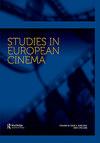Filming abject Heterotopias: a spatial critique of Béla Tarr’s select later films
IF 0.2
0 FILM, RADIO, TELEVISION
引用次数: 0
Abstract
ABSTRACT Béla Tarr’s later films stand out as paradigms of spatial politics in European film culture. They visualize the experience of abject heterotopia through a series of spatial metaphors. This article is a spatial critique of Tarr’s later films Sátántangó, Werckmeister Harmonies and The Turin Horse. The critique is based on cultural heterotopology, a reformulation of Foucauldian heterotopology by Henri Lefebvre and Edward Soja. The horror of abjection, that seems to pervade the spatiality of these films, calls for alternative (re)ordering of the social space. Tarr presents a social space consistently characterized by desolation and poverty which contemporary Hungary has been reduced to.拍摄卑鄙的异乌托邦:对贝拉·塔尔后期精选电影的空间批判
本文章由计算机程序翻译,如有差异,请以英文原文为准。
求助全文
约1分钟内获得全文
求助全文

 求助内容:
求助内容: 应助结果提醒方式:
应助结果提醒方式:


